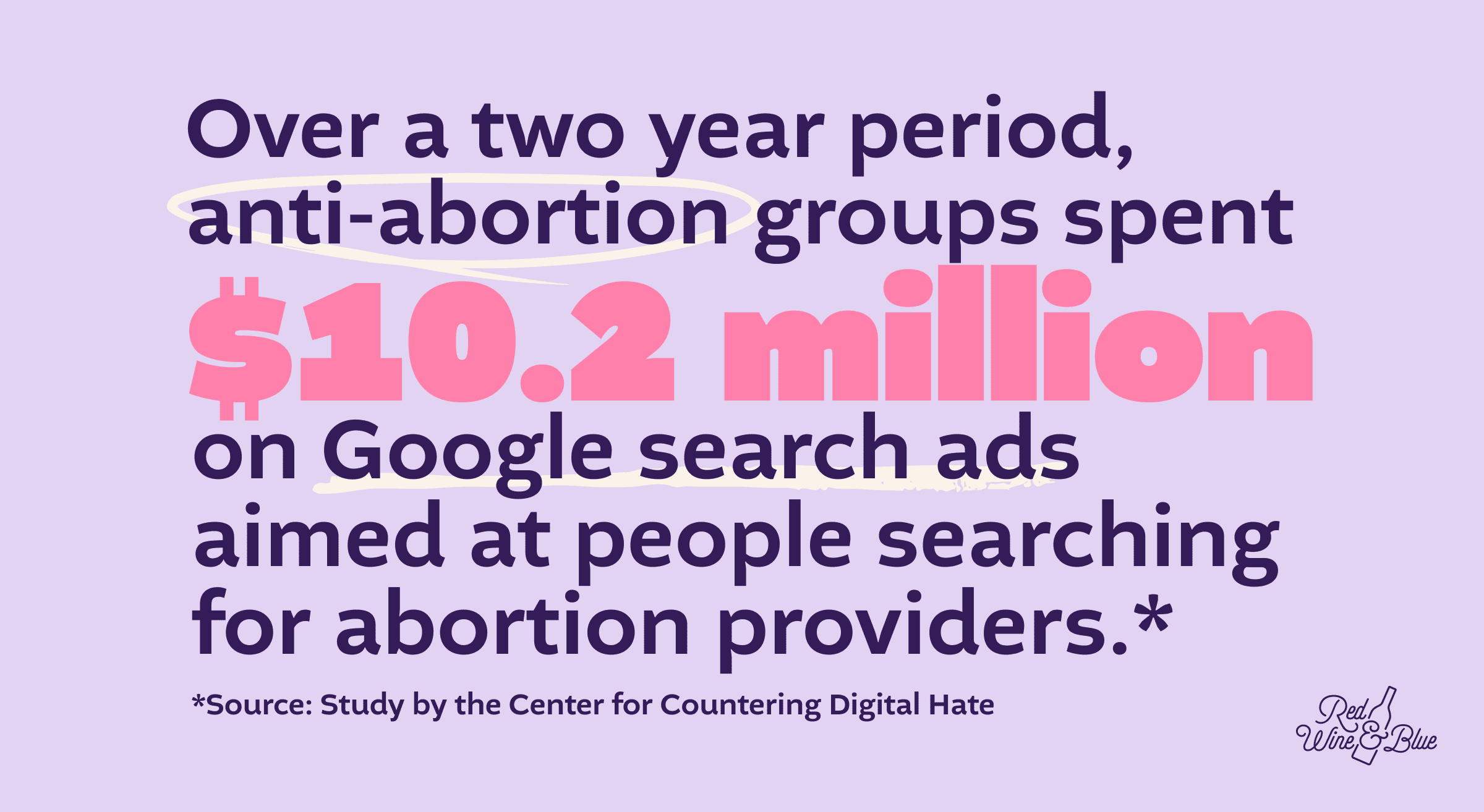Have you seen a billboard reading something like, “Pregnant? We can help.” You might envision a supportive place for women to get safe and professional reproductive healthcare. But that’s not the reality.
Despite their outward appearance as qualified health clinics, most crisis pregnancy centers (CPCs), also known as “pregnancy counseling centers,” are often staffed by people with no medical credentials. They also have deep ties to religious groups who oppose abortion. You may be surprised to learn then, that the crisis pregnancy center industry operates on a national scale, receiving millions of taxpayer dollars annually while serving as a key player in the anti-abortion movement.
So how do women seeking abortion care wind up in a crisis pregnancy center? Unfortunately, CPCs rely on deceptive marketing. They aim to attract women who are seeking abortions by pretending to offer real healthcare options. They place ads near schools, colleges, and in online spaces to target women who are searching for abortion clinics. When women search for abortion clinics online, these centers’ ads often appear at the top. A report from the Center for Countering Digital Hate found that over a two year period, anti-abortion groups spent an estimated $10.2 million on Google search ads. Those ads were clicked on an estimated 13 million times, often by women looking for real reproductive care.

Once vulnerable pregnant patients are inside, CPCs often use religion to influence their decisions. They display religious visuals and symbols — things you wouldn’t normally see in a medical setting. They often have strict anti-contraception policies. They equate birth control to abortion and promote an abstinence-only lifestyle.
Staff at many CPCs dress in medical attire like white coats and scrubs, even if they aren’t certified medical professionals. They perform non-diagnostic tests. They also use disinformation, manipulation, and scare tactics to dissuade women from seeking abortions. They use fake medical terms, imply false connections between abortion and other health risks, cite non-existent studies, and repeat claims that have consistently been debunked by reputable institutions. A Planned Parenthood investigation found that 80% of CPC websites have false or misleading information.
As you can see, CPCs manipulate pregnant women through every step of their search for abortion care, from misrepresenting who they are and what options they provide, to using fear and guilt to stop women from getting abortions, and even misleading women about the gestational age of their pregnancy. These tactics delay or prevent women from accessing timely abortions and potentially jeopardize their health.
To make matters worse, as of 2023, CPCs outnumber real abortion clinics by 3 to 1, with over 2,500 operating in the U.S. CPCs are a dangerous part of the anti-abortion movement and not enough people know about them, but we’re going to change that! Stay tuned next week to hear directly from a woman about her CPC experience.

